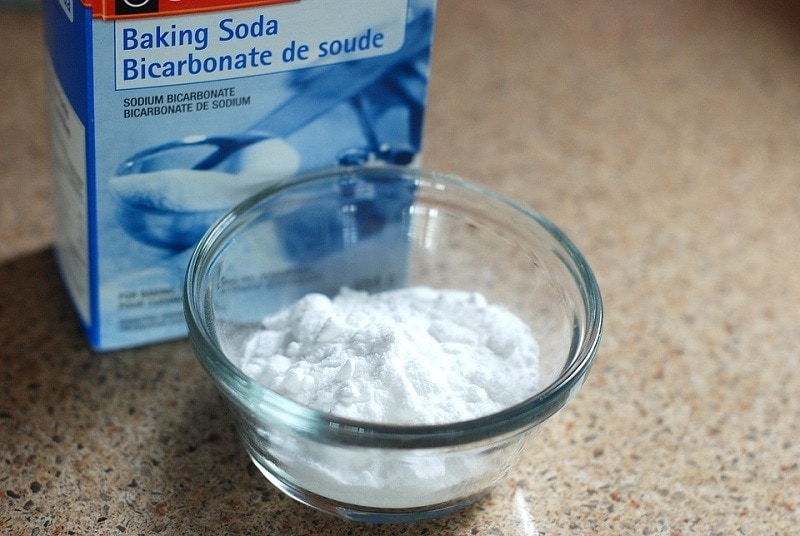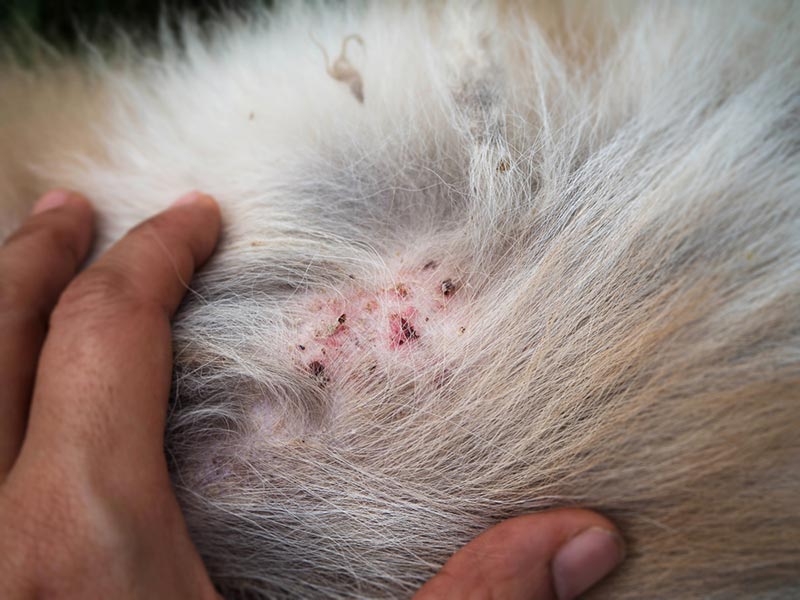Does Baking Soda Kill Fleas? Safety & Effectiveness Explained
Updated on

While baking soda is great for absorbing smells and is safe for pets, it, unfortunately, won’t protect them from fleas. Some online advice suggests baking soda may dry out flea eggs, but there’s no evidence to back this up.
However, it’s important to note that baking soda is completely safe for pets. Unless they consume a large amount, there’s no need to worry about any harm coming to your furry friend. However, it can dry out your pet’s skin, causing irritation and discomfort. If your pet is at risk for skin issues, avoiding using baking soda altogether is best.
To prevent and treat fleas effectively, it’s recommended to use commercial medication. Speak with your veterinarian to find the safest and most effective option for your pet. Prevention is key to managing flea infestations. Make sure to keep your pet on preventative medication and follow any other recommended preventative measures specific to your pet. You’ll need to regularly treat your homes to keep your pets flea-free, too.
Baking Soda Side Effects
Baking soda can cause side effects for many cats and dogs if they consume too much of it. While pets won’t usually consume this substance by themselves (because they don’t like the taste), they can lick it off if you apply it to their skin. Larger dogs can consume more baking soda than smaller dogs. However, they also need more applied to completely cover their body.
The first sign of baking soda toxicity is vomiting. Baking soda toxicity is rarely deadly, but it theoretically can be. Lethargy, spasms, and seizures can occur in extreme cases. If large amounts are consumed, metabolic alkalosis can occur when the pH of your pet’s blood becomes too high. This condition is deadly and requires veterinary treatment.
Treatment for baking soda toxicity may involve fluid therapy to correct electrolyte imbalances and medications to manage symptoms such as seizures.
Cats tend to be more sensitive to baking soda than dogs due to their differing metabolism. Therefore, you should be especially cautious when using baking soda on felines. We don’t recommend using it for dogs either, though.

What About Salt?
Many websites recommend salt mixed with baking soda to kill fleas. Salt can potentially dry out flea eggs and larvae. However, you’d need to use a lot of salt. If you use enough salt to dry out the fleas on your pet, it may end up injuring your pet. While dogs and cats require some level of salt, they can overdose on salt just like people. Their commercial food should contain all of their needed salts. They don’t need any extra. Salt toxicity is a real issue and can be deadly in some cases.
Does Baking Soda and Salt Really Kill Fleas?
Probably not, and you may injure or kill your pet as well. Salt toxicity is a huge problem when using salt to kill fleas. Salt is very drying and may kill some fleas. However, your pet will consume some of the salt in the meantime. In severe cases, this can lead to salt toxicity, which is potentially deadly.
Baking soda doesn’t really dry out fleas, though it can help with odors. It doesn’t directly affect fleas, despite many websites recommending it for flea prevention. Luckily, baking soda can’t hurt your pet in most cases either. With that said, it can produce some side effects if your pet consumes a lot.

Final Thoughts
Many websites recommend utilizing baking soda and salt for flea prevention and treatment. However, this method isn’t effective and is not necessarily safe for your dog or cat. Baking soda is generally considered safe when used in small amounts, but it isn’t effective against fleas.
High amounts of baking soda can be toxic, though. It can change the pH of your pet’s blood, leading to serious problems throughout their whole body.
Salt is often recommended for use alongside baking soda. However, it isn’t safe, either. Commercial products are much safer and recommended. Just because salt is technically “natural” doesn’t mean it is safe.
Related Article:
- Does Sevin Dust Kill Fleas? Vet-Reviewed Safety & Effectiveness Facts
- How Long Does Flea Medicine Take to Dry? Vet-Approved Facts & Tips
Featured Image Credit: NatureFriend, Pixabay













